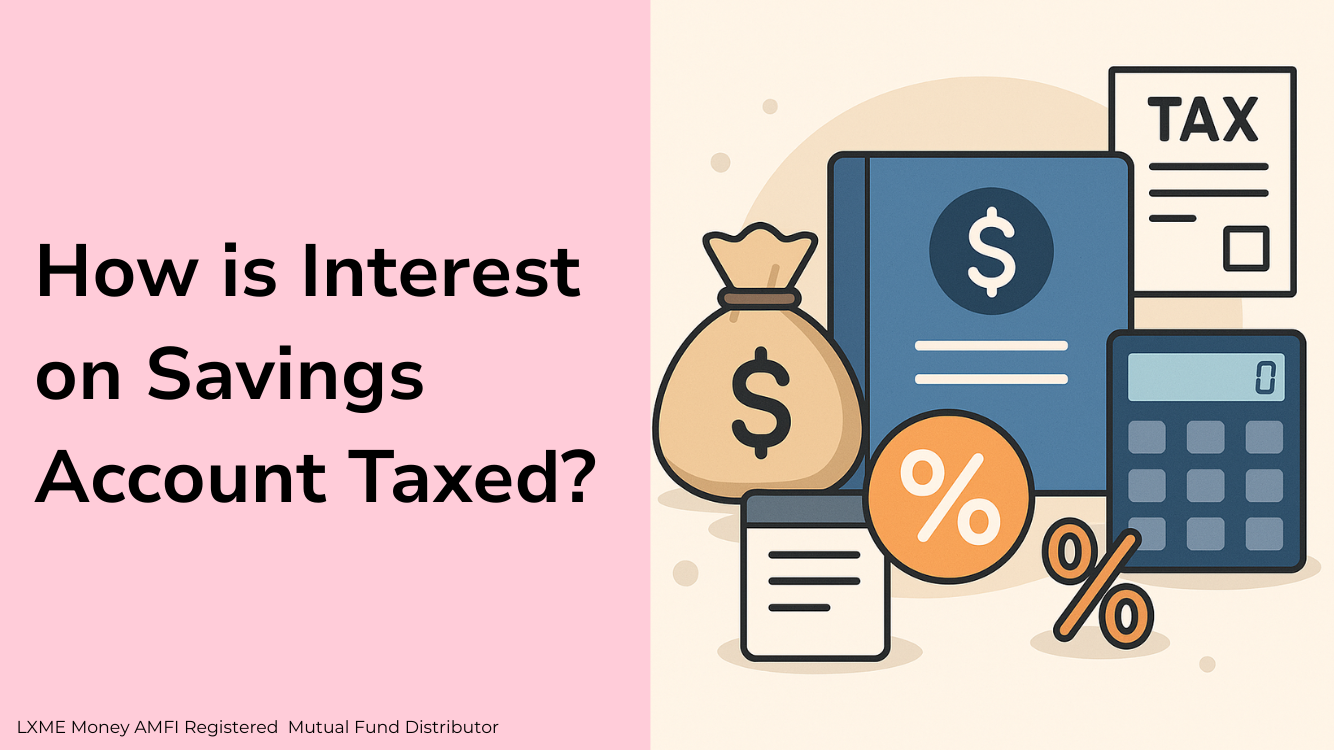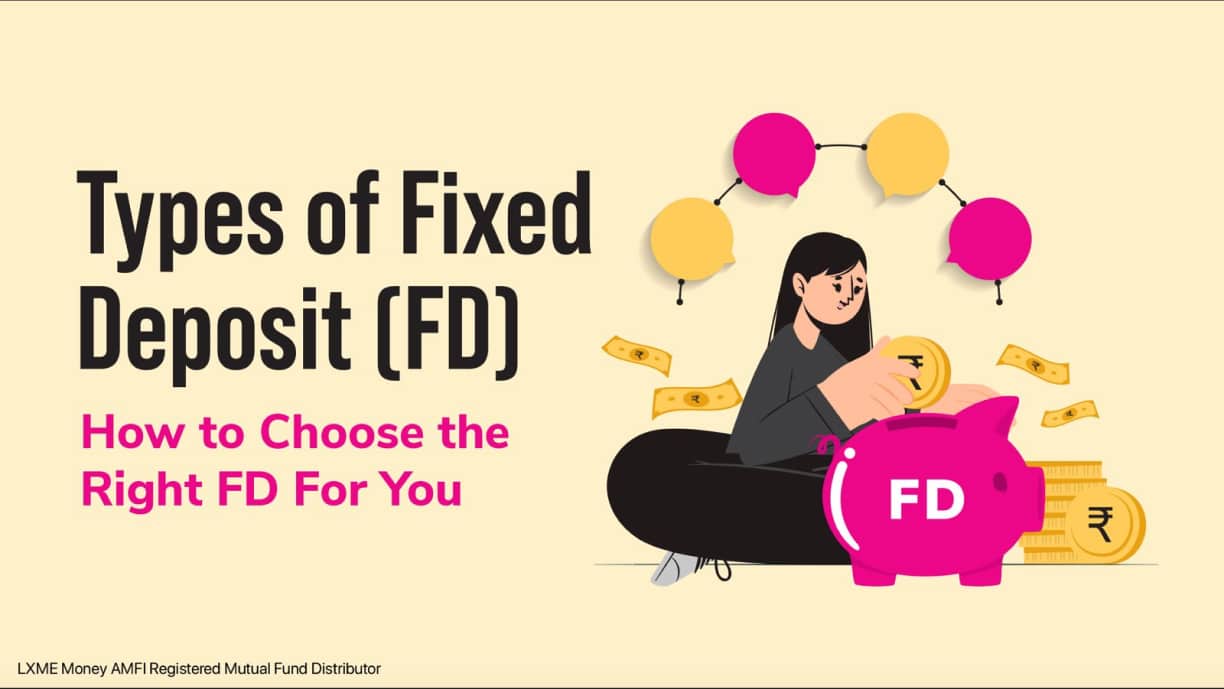All women want their money to be safe! This is where Fixed Deposits come in. But, did you know there are different types of FD account? In this blog, we’ll discuss the types of FDs available and which one is the most suitable option for a woman.
What are Fixed Deposits?
Fixed Deposits are fixed-term investment instruments that allow investors to deposit a lump sum amount for a specific period at a fixed rate of interest.
Let’s have a look at the types of FD account,
Types of Fixed Deposit
Bank FD
Bank FDs are conventional fixed deposits offered by banks. Here, an investor deposits a lump sum amount for a fixed period and at a certain interest rate. Different banks will have different tenures and different interest rates.
Tax Savings FD
Tax saving FDs offer fixed deposit tax exemption up to Rs. 1.5 Lakh under Sec 80C. However, the tenure for this type of FD is 5 years and once you invest in this type of FD, you cannot withdraw your funds until the maturity period ends.
Senior Citizen FD
These FDs are offered to senior citizens and typically have an interest rate higher than conventional FDs.
Corporate FD
Unlike Bank FDs, corporate FDs are fixed deposits offered by corporates or by non-banking financial corporations. They offer higher interest rates as compared to bank FDs and have more flexibility of tenure.
Factors to consider while choosing the right one?
Interest Rates –
Before making an investment decision, take a look at the interest rates being offered on your FD and compare it with FDs offered by other institutes. Different types of FDs offer different interest rates, for example, Corporate FDs offer a higher interest rate than Bank FDs.
Duration –
The tenure preferred by an investor depends on their investment goals, interest rate and liquidity requirements. A woman should evaluate her needs and then choose a FD that offers her preferred tenure.
Withdrawal Rules –
An investor might need to withdraw their funds before the maturity date. Before choosing an FD, understand the withdrawal terms of the FD as well the penalties charged on early withdrawal.
Reputation of Institute –
Research the financial stability of the institution offering the FD. Check the FD’s credit rating as well as the feedback provided by past customers to understand if the institution is trustworthy and has a good credit history.
Extra Benefits –
Some FDs provide additional benefits such as higher interest rates for women and senior citizens etc. Choose an FD that suits your requirements.
Which FD account is best?
Between the different FD types available, one can explore corporate FDs as they offer a relatively higher interest rate and flexibility to investors. Additionally, certain corporate FDs offer special rates for senior citizens and women.
Here are some advantages of fixed deposit – Corporate FD
- Higher Interest Rate than typical Bank FDs
- More flexibility in terms of tenure and amount
Lxme is now offering corporate FDs! Invest with Lxme in CRISIL AAA-rated corporate FD through Bajaj Finance or in ICRA AA+ rated Corporate FD through Shriram Finance Limited and begin saving smartly!
Should you put all your money into fixed deposits?
While, FD can be a safe investment option to save your money, it should be noted that interest rates offered on FDs don’t normally beat inflation rates. This is why diversification is important. When you invest in Fixed deposits you should also put some money into other asset classes such as equity, debt, and gold, and diversify your portfolio.
Also, check out the blog on adding nominee for fixed deposits
In conclusion, the benefits of fixed deposit differ with different types of FDs. Choosing the correct FD for you involves evaluating your requirements for interest rate, duration, and withdrawal terms.
FAQ’s
What are the different types of fixed deposits?
There are different types of fixed deposits such as Bank FD, Tax Saving FD, Senior Citizen FD, Corporate FD etc.
Is it OK to have multiple FDs?
Yes, you can open as many FDs as you’d like. However, you should ensure that you also invest in other asset classes such as equity, debt, gold etc. and diversify your portfolio.
Is there TDS deduction on FD?
Yes, TDS is charged on FD. For corporate FDs, if your interest income exceeds Rs. 5,000, TDS is deducted at 10%.
Share this blog with your family and friends if you find it insightful!!
Download the Lxme app for more such content!












